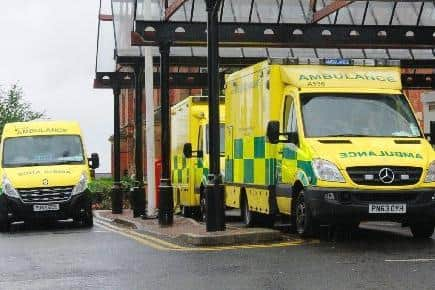North West Ambulance Service drafts in support from military personnel as Covid-related staff absences reach 25 per cent
and live on Freeview channel 276
North West Ambulance Service (NWAS) has said they will partner clinicians on the road to respond to non-emergency patients.
It is hoped this will support both the ambulance service and the wider NHS, as well as ensuring patients whose need is not urgent, and who may face a longer wait in busy periods, can be seen.
Advertisement
Hide AdAdvertisement
Hide AdThey will begin training on Tuesday and work with NWAS for a number of weeks.


Ged Blezard, director of operations at NWAS, said: "It is no secret that the ambulance service, along with the NHS as a whole, has been under extreme pressure for several months. Now we are also experiencing high numbers of staff absences due to confirmed Covid-19 cases and isolation, with around 25 per cent of the workforce currently affected. As part of our resilience planning, we can make a request to the military for support and feel now is the right time to put the arrangements in place.
“We worked alongside the military last February and March and it allows us to have more of our vehicles on the road, getting people the treatment they need sooner. This frees up emergency ambulances to attend to urgent, life-threatening cases.”
The military personnel will receive NWAS training in driving ambulances, manual handling, kit familiarisation and basic life support, similar to the standards of the trust’s patient transport staff who have also been supporting the emergency service throughout the pandemic.
Advertisement
Hide AdAdvertisement
Hide AdIt follows a very successful partnership last winter, when military personnel were deployed to more than 4,600 non-life-threatening 999 incidents, including assisting with transportation of patients between healthcare sites approximately 1,700 times. Feedback from those who worked with the military personnel was overwhelmingly positive.
Mr Blezard added: “I would like to thank our NWAS team of staff and volunteers for their continued dedication over the last two years. They have been working incredibly hard to deliver the best possible service for our patients. Taking this timely intervention to increase our resources means we can carry on doing that while providing extra support for our staff and patients during another challenging period.
“As always, we are here for you in an emergency, and you can assist us by using 111 online if you need urgent care advice and only dialling 999 in a life-threatening situation.”